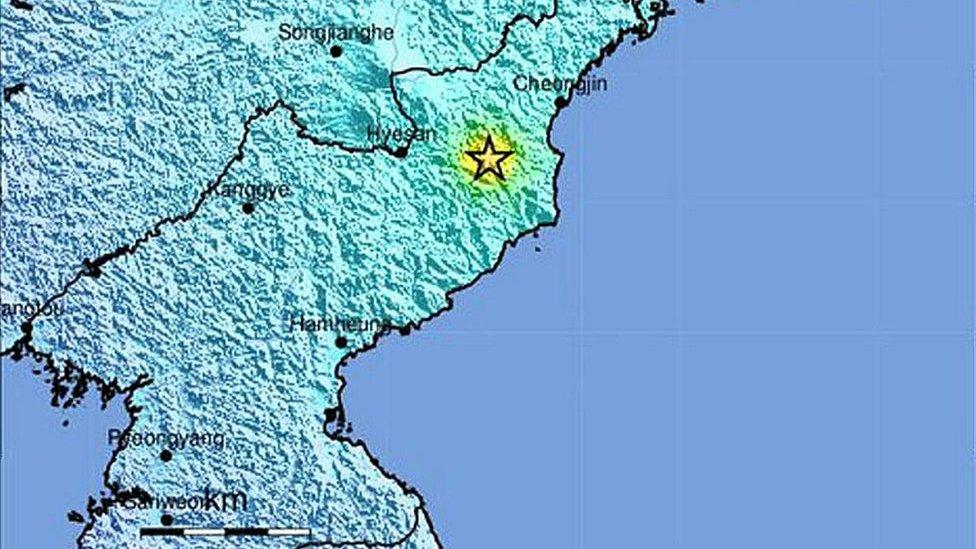What if Trump cut ties with North Korea's trade partners?
- Published
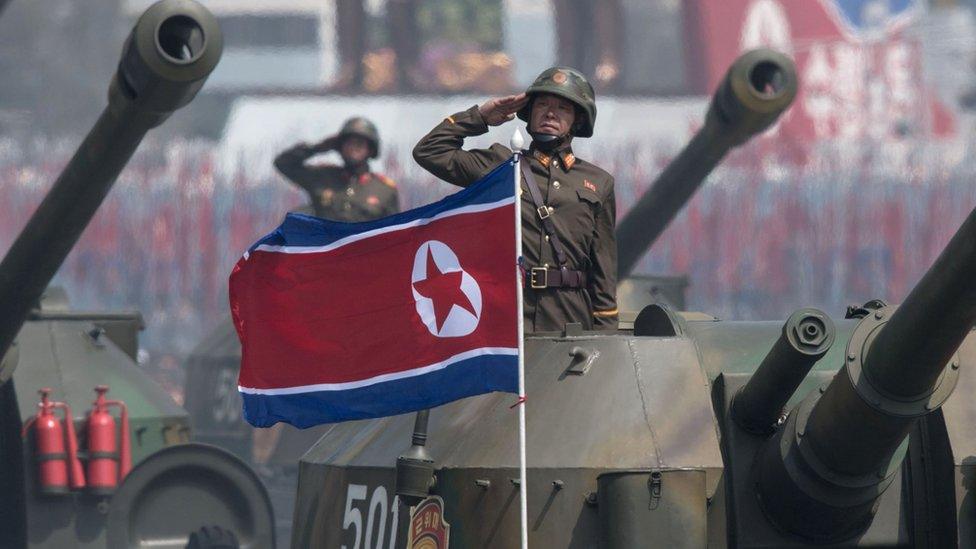
How realistic is cutting off trade ties with all of the countries that do business with North Korea?
This is what US President Donald Trump has threatened on Twitter following North Korea's sixth nuclear test, its biggest so far and one it claims is the successful test of a hydrogen bomb.
The international community has tried everything short of military action to get North Korea to stop, but nothing - not sanctions, not isolation, or even the threat of annihilation appears to have dented its nuclear ambitions.
So now, instead of just punishing North Korea, President Trump has tweeted that he will punish all countries who still do business with North Korea by stopping US trade with them.
To look at how realistic that might be - first we have to look at which countries do business with North Korea.
Countries that trade with North Korea
According to figures from KOTRA, external (Korea's Trade Investment Promotion Agency) there were around 80 countries that traded with Pyongyang in 2016 including:
China
Russia
India
Pakistan
Singapore
Germany
Portugal
France
Thailand
Philippines
North Korea's total trade with all of the countries on the list last year was worth US$6.5bn. That figure has been growing by about 5% a year. Granted, the amount of trade for some of these countries is small and decreasing. But there are some fascinating insights.
Singapore - which is number 8 on the list of largest traders with North Korea - saw trade with Pyongyang fall by 90% in 2016.
Meanwhile the Philippines - saw a massive 171% jump in trade with North Korea.
Both are economic partners of the US.
In fact, many of the countries on this list are trading partners with the US and most are doing far more business with the US than they do with the tiny North Korean economy.
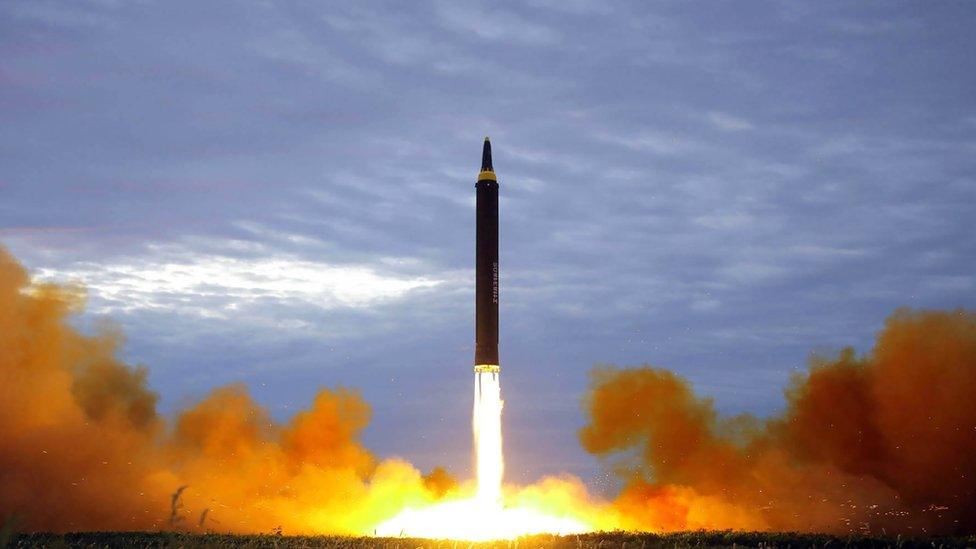
North Korea fired a missile over Japan in August
The China factor
But there is one country that potentially holds all the right cards. No prizes for guessing who is Pyongyang's biggest customer and supplier - China.
90% of North Korea's trade comes from China.
Beijing is mainly buying coal and other minerals from Pyongyang, and crucially supplying food and fuel for its citizens. The data from 2016 doesn't clearly reflect what's going on now, as China banned North Korean coal in February.
So when Trump says that the US would stop doing business with countries trading with Pyongyang, it would almost certainly have to include China.
But frankly it is hard to see how that would happen without some damage to the US economy. This it how it breaks down:
Trade: China is the US's largest trading partner.
Goods: The US bought more than $450 bn worth of goods from China last year, external and exported $115bn to China.
Jobs: Cutting off trade with Beijing would cost the US almost a million American jobs, external connected to goods and services exported to China.
Consumer prices: As I've written about before, even Trump's threats of imposing tariffs on China for being a currency manipulator would have disastrous effects on prices of goods in the US, boosting the cost of an iPhone for instance by about 5%.
The global economy
Don't forget - anything that affects China would necessarily also affect the global economy. Global research house Capital Economics says if the US were to stop buying goods from China altogether, it would cost the country some 3% of GDP.
Which would have a knock-on effect of that on economies in Asia, most of whom count China as their biggest trading partner, and buyer of goods.
All of that is possibly why Treasury Secretary Steve Mnuchin has come up with a less direct way to "punish" these countries - he said in a Fox TV news interview, external on Monday that he was preparing a sanctions package that would cut off "all trade and other business" with Pyongyang, adding that there's "much more" the US can do economically.
But that just looks like more of the same stuff we've seen before, external.
So what we are left with is a US that appears to have increasingly few economic options left on the table when it comes to negotiating with Pyongyang.
Even if President Trump follows through with his trade threat, it would almost certainly result in a congressional backlash.
It's hard to see how the president would be able to sell a policy with such questionable effectiveness, and one that would damage the US economically more than it would limit North Korea's nuclear options.
- Published4 September 2017
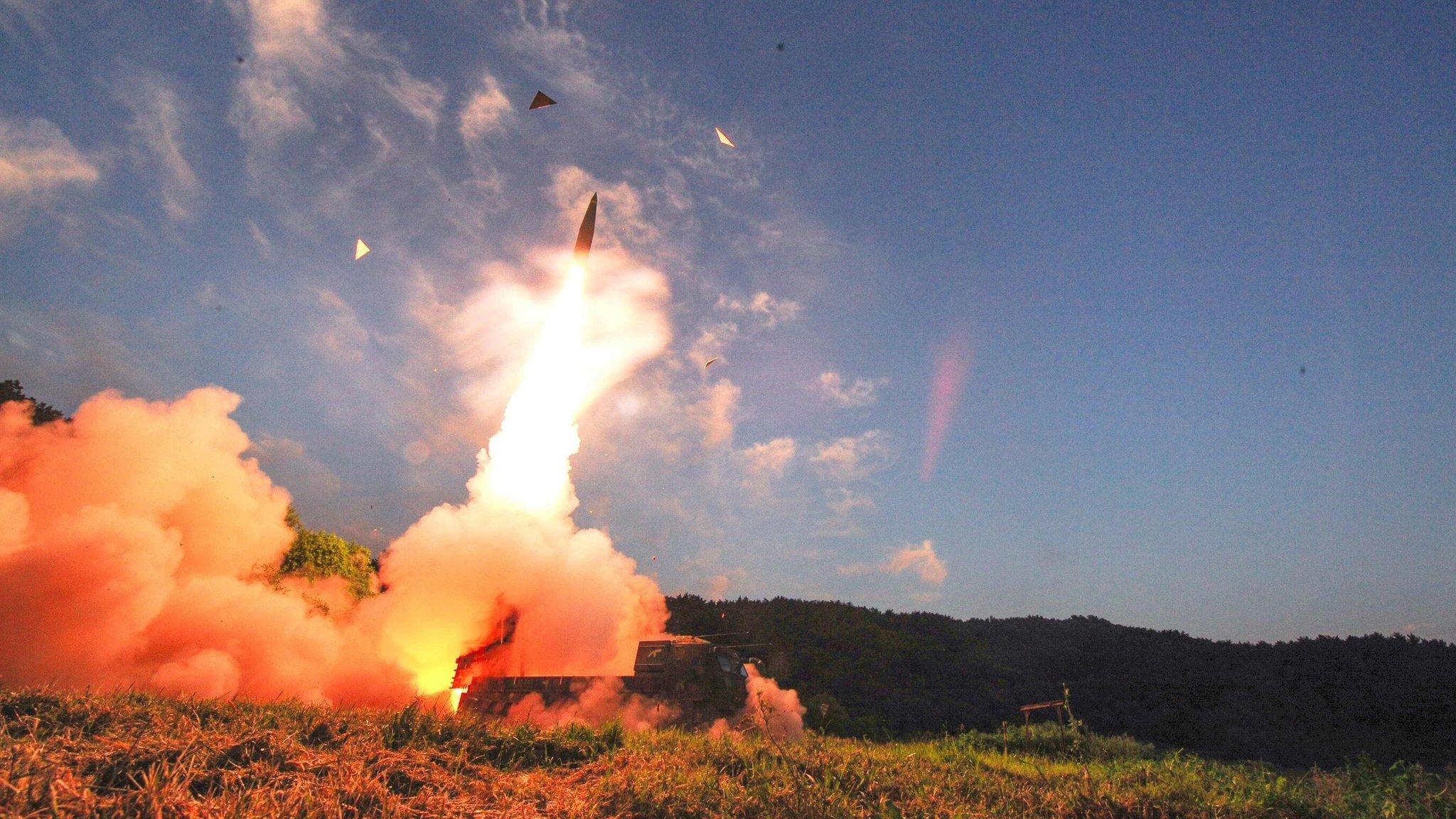
- Published3 September 2017
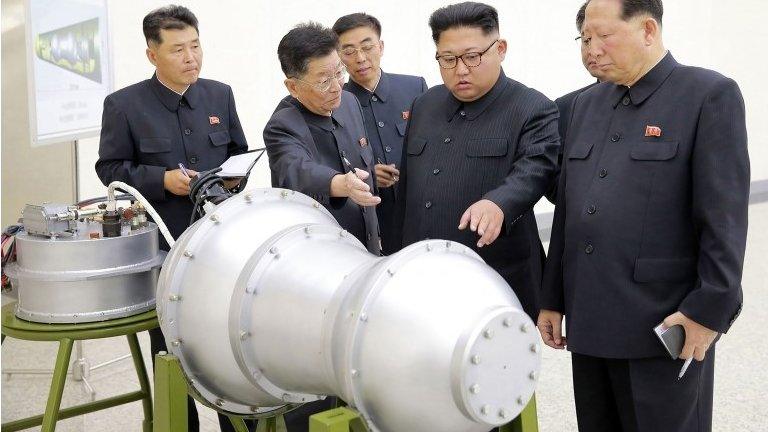
- Published3 September 2017
